Why Stop Croisières ?
Surfing simulations, ice rinks, theaters, casinos, swimming pools, whirlpools, giant water slides, mini golf courses, laser games. In times of ecological emergency, do we really need to put all that on a boat? However, this is what the cruise industry is proposing, a sector of booming capitalism embroiled in an aberrant race for one-upmanship, whatever the consequences.
On an environmental level as on a human level, nothing justifies the maintenance of these absurd, energy-intensive and toxic floating cities. We, collectives and residents of the Marseille region and elsewhere, united under STOP CROISIÈRES, have decided to put an end to this disastrous industry for our health and the ecosystems. Our air, our seas and our health are not up for negotiation.
Last publication
- In Marseille, the large seaport blocked by Stop Croisières and Extinction Rebellion during the European Heritage Days
- The 2024 actions of the European ECAN coalition
- Stop Croisières, XR and ECAN in pursuit of Azamara Quest
- Action during the supervisory board of the Grand Port Maritime de Marseille
- Letter of claims at the Grand Port Maritime de Marseille
Keep in touch
By submitting this form, I agree that my email address will be used for contact purposes and information on the actions and news of the Stop Croisières collective according to the site’s confidentiality policy.
Our arguments
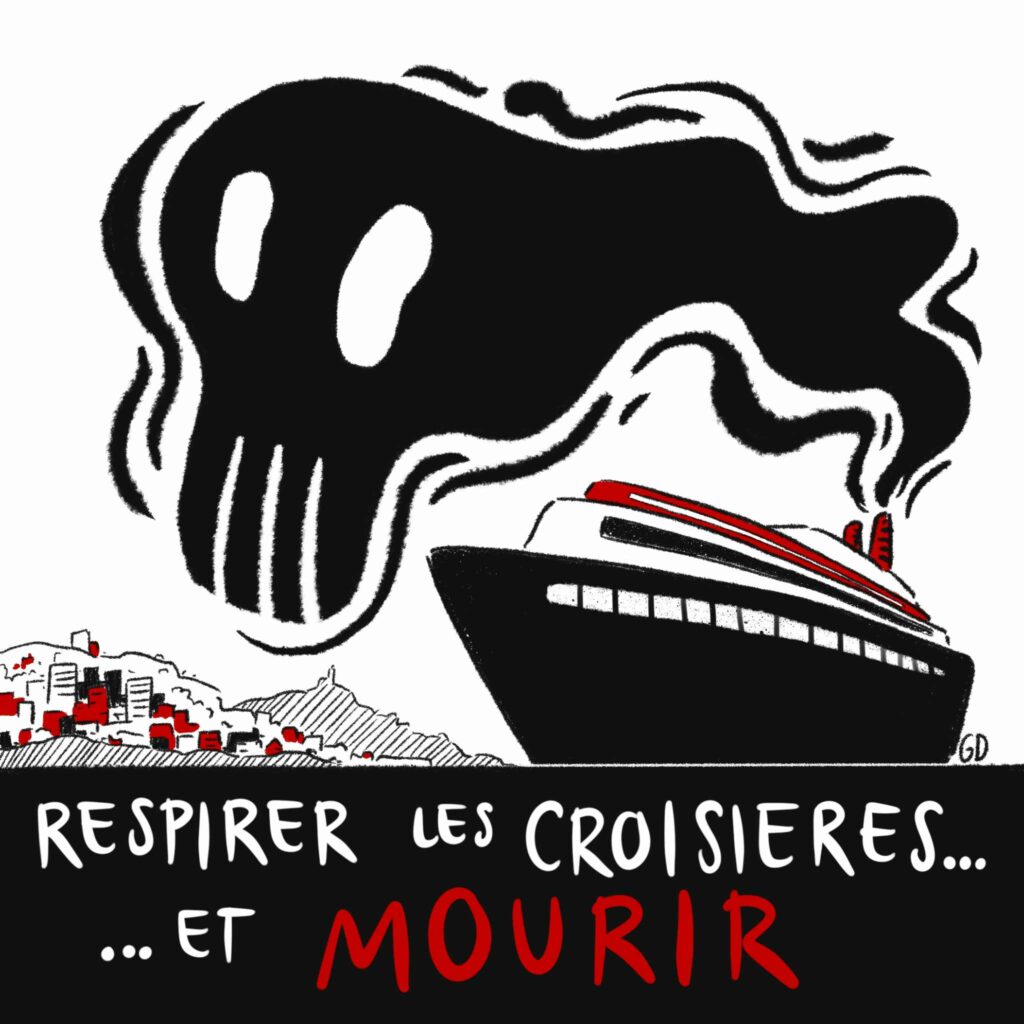
Breath cruises… and die
Respiratory, cardiac and pulmonary diseases, cancers, allergies, asthma, alterations in fetal development and between 50,000 and 60,000 deaths per year in Europe are caused by SOx (sulfur oxides), NOx (nitrogen oxides ) and fine particles emitted during the combustion of heavy fuel oil used by maritime traffic.
To hide air pollution… they pollute the sea
” Do not panic ! We neutralize the fumes with our scrubbers,” the cruise industry tells us, by discharging polluted washing water into the sea which, added to the wastewater from on-board activities and the smoke fallout which retains part of its toxicity, causes the warming and acidification of seas and oceans, the acceleration of global warming and the death of marine ecosystems.
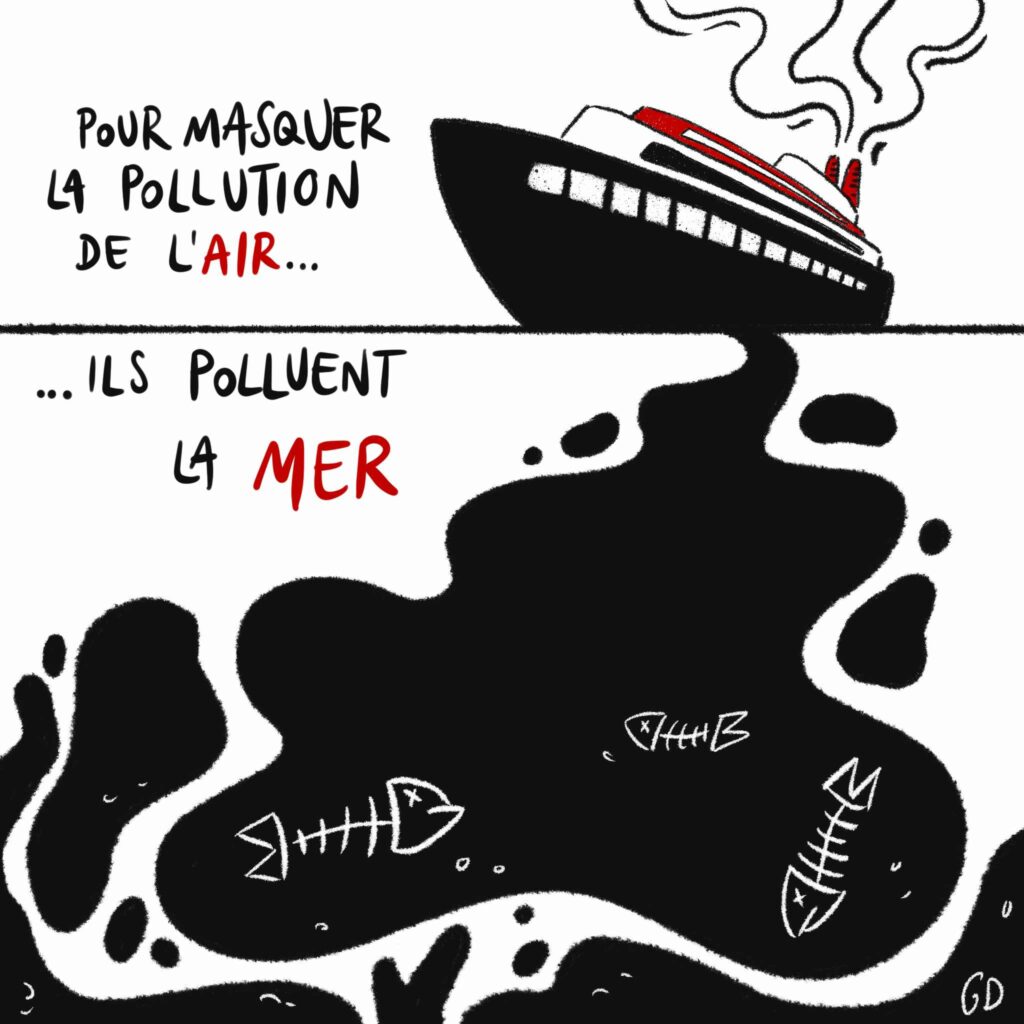

Between cruises and the climate, we have to decide
4.4 tonnes of CO2 equivalent: this is the carbon footprint of a standard cruise for two, while the Paris agreements limit us to 2 tonnes of CO2 equivalent per person PER YEAR! Let’s keep our “carbon budget” for priority activities.
An unsustainable waste of resources and energy
Beyond the climate issue, gigantic quantities of material are extracted, transformed, shaped, maintained and recycled for this perfectly dispensable leisure industry where each boat plugged into the dock can consume as much electricity as tens of thousands of homes… while in a context of scarcity of resources we need sobriety more than ever.
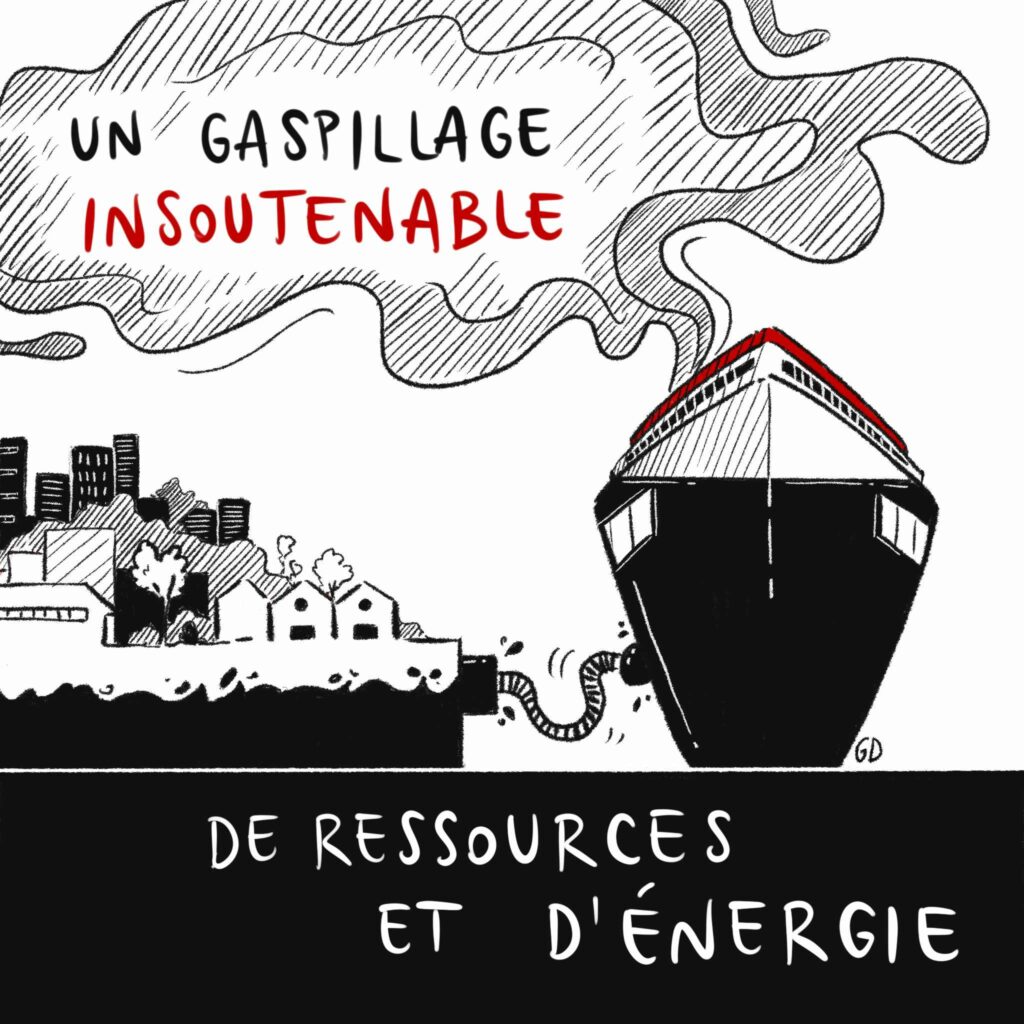
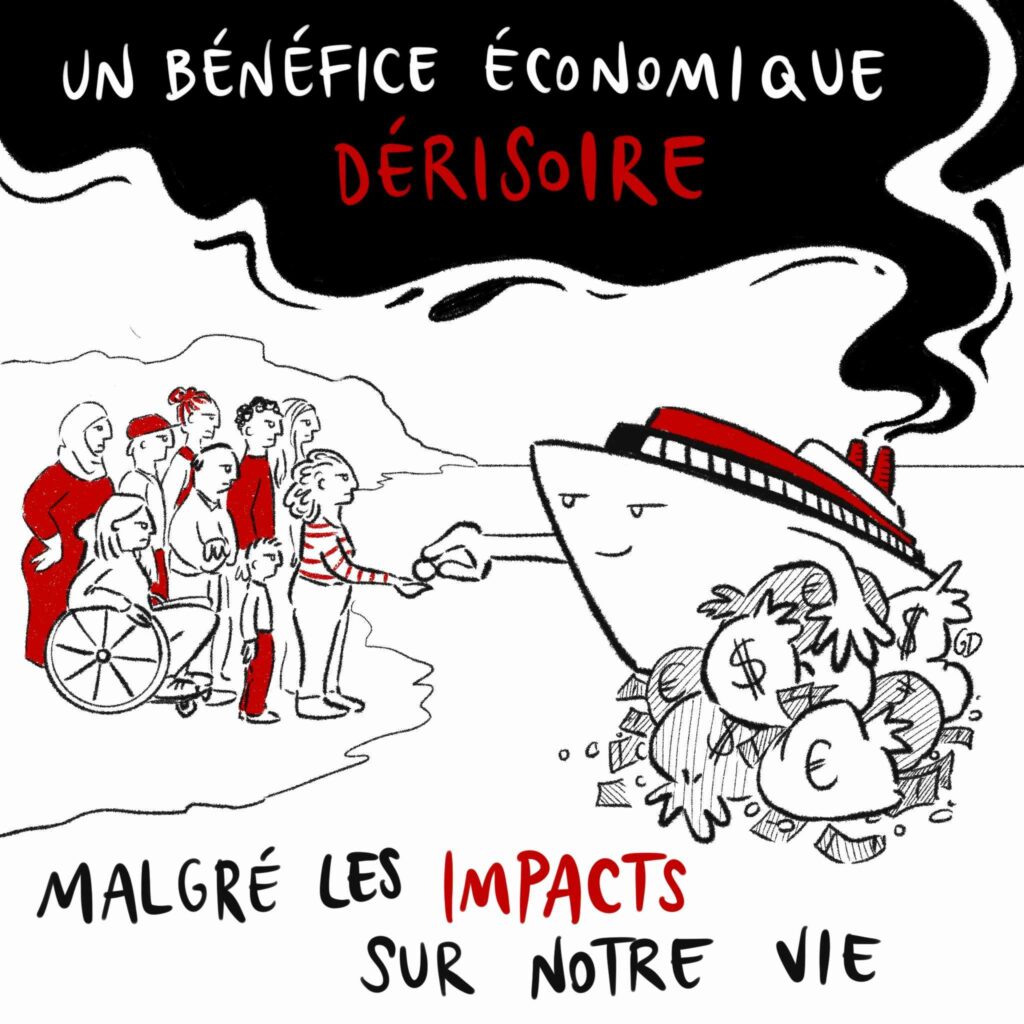
A paltry economic benefit
Overconsumption on board to the detriment of territories is the philosophy of this industry which bases its profitability on an accumulation of superfluous services and competition between host ports to underpay them. “But we are bringing 20,000 French jobs,” the studies carried out by their lobbies assure us. True or not, this will be largely offset by the creation of jobs with higher social/environmental value.
Fraud at sea
Few laws in the land of cruises: the lines are blurred by dispersing corporate structures across several countries, taxes reduced to 1% of profits by registering in tax havens, crimes on board often go unpunished and staff , recruited where the workforce is most labor intensive, is exploited and underpaid, with no minimum wage or limit on working hours.
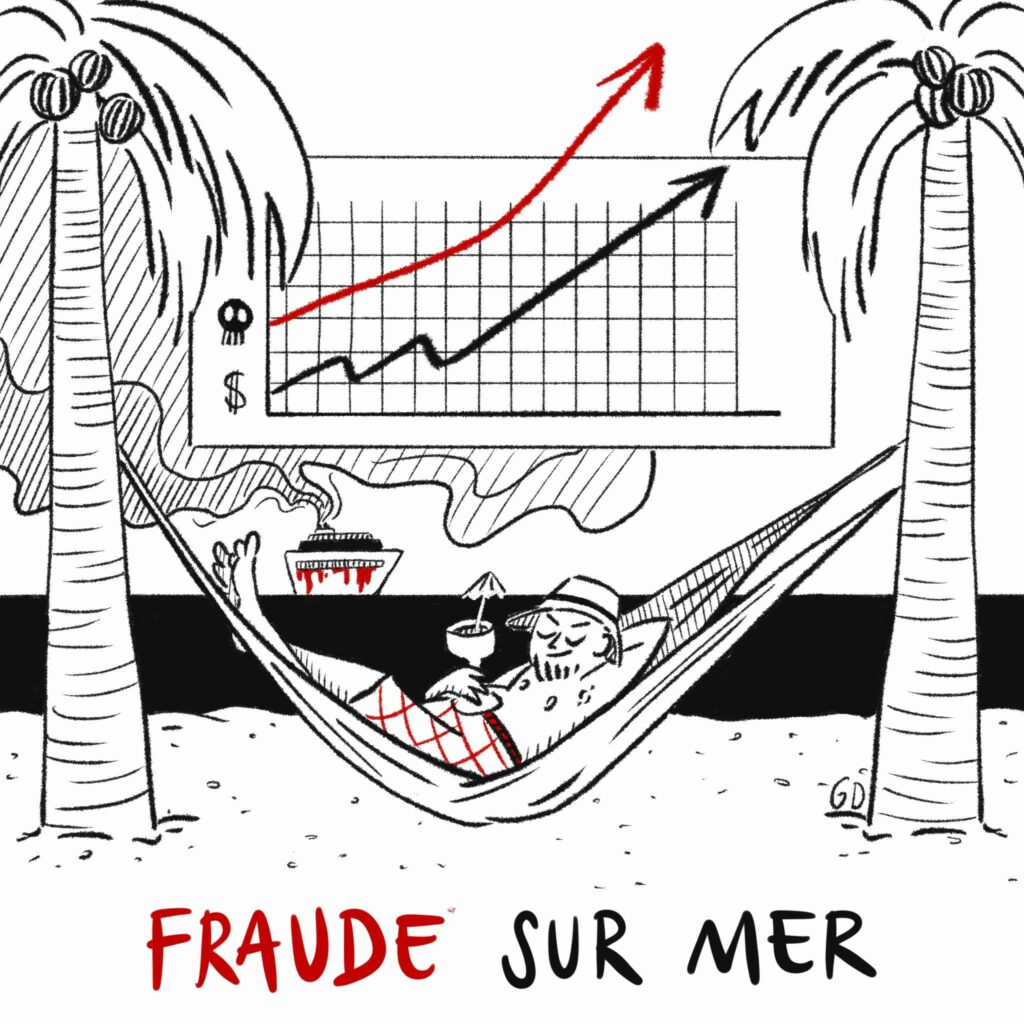
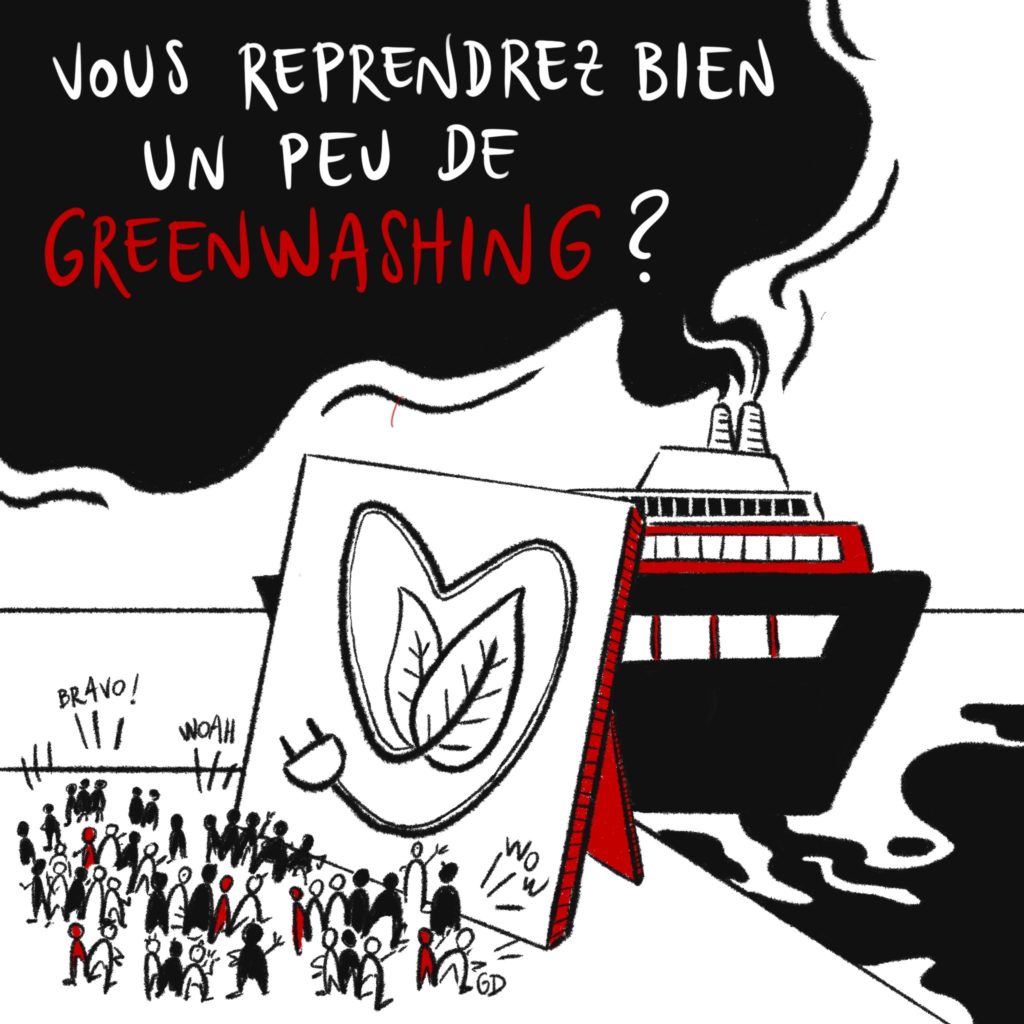
Would you like to do some greenwashing again?
Faced with accusations from local populations and the media, the industry disguises itself as an environmentalist while hiding its filth under the carpet: polluting the sea instead of the air, replacing one toxic fuel with another, ravaging the Arctic… full of the oxymoron of green capitalism.
Lies to hide their crimes
The Cruise Club, now Marseille Cruise, to which Marseille no longer adheres but which still imposes its law on the Metropolis and the department, operates intense lobbying to defend the interests of a handful of capitalists, using disinformation and pressure on elected officials.

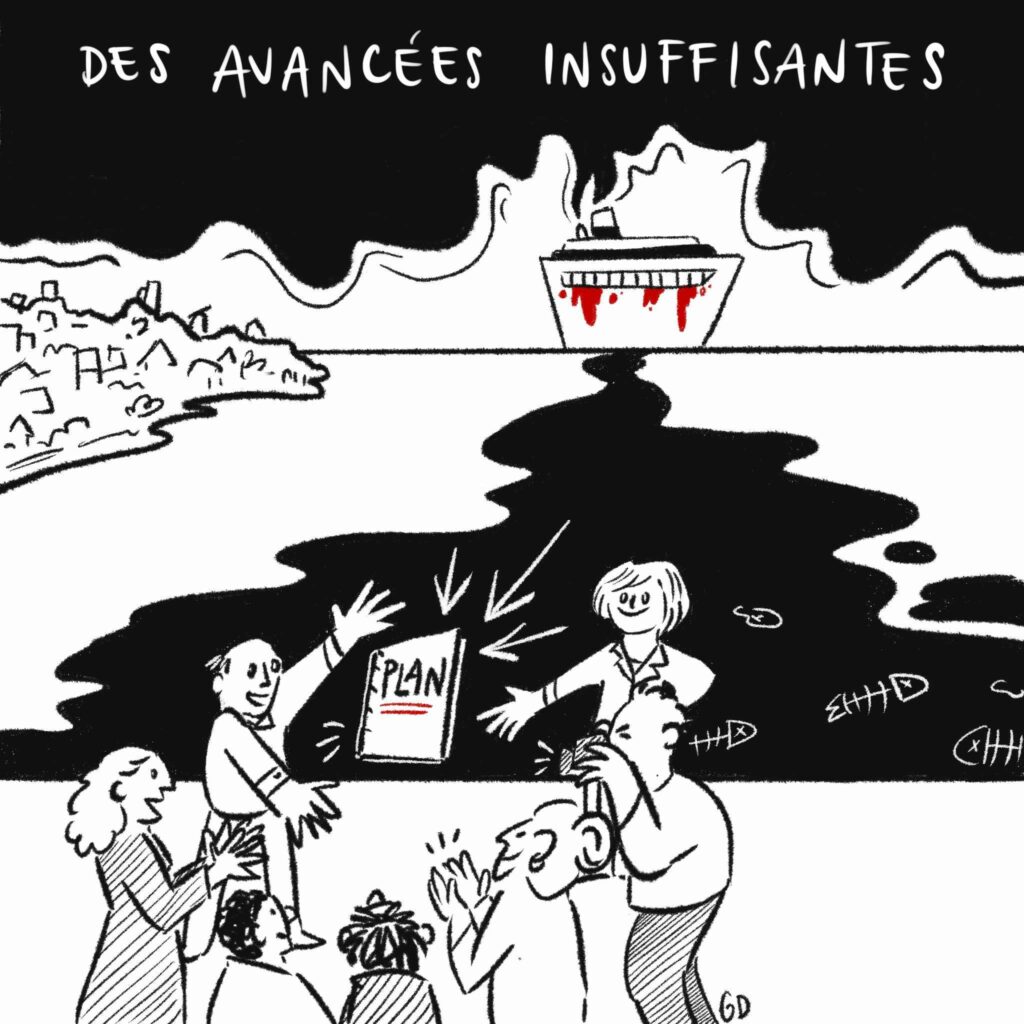
Insufficient progress
Certain things are still going in the right direction in Marseille, in the Mediterranean and elsewhere: start of electrification of ships at dock, project to establish a low-emission zone, limitation of traffic and scrubbers, abandonment of port extension… but will remain insufficient as long as they avoid the root of the problem.
